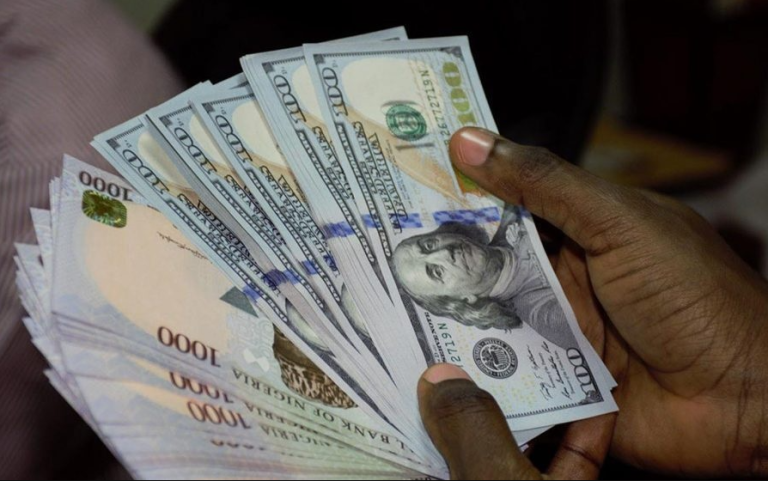The Naira gained against the dollar on Friday, 3rd February 2024 at the official market but declined at the black market.
The domestic currency appreciated marginally at the end of the tumultuous week by 1.84% to close at N1,435.53 to a dollar at the close of business, data from the NAFEM where forex is officially traded, showed.
This represents an N26.37 gain or a 1.84% increase in the local currency compared to the N1,461.90 closed on Thursday.
- The intraday high recorded was N1526/$1, while the intraday low was N838.96/$1, representing a wide spread of N687.04/$1.
- According to data obtained from the official NAFEM window, forex turnover at the close of the trading was $440.13 million, representing a 180,59% decrease compared to the previous day.
- However, the naira closed flat at the parallel forex market where forex is sold unofficially, the exchange rate quoted at N1,500/$1, a decline of 0.33% against N1,495 it closed the previous day, while peer-to-peer traders quoted around N1432.40/$1.
What you should know
The Central Bank of Nigeria (CBN) has been actively addressing issues of foreign currency speculation and hoarding by Nigerian banks.
- A new circular introduced guidelines aimed at reducing the risks associated with these practices, noting that some commercial banks hold long-term positions in forex with the hope of profiting from currency depreciation.
- The Governor of the Central Bank, Mr. Yemi Cardoso, also recently stated that the naira is undervalued and promised to work towards real price discovery in the foreign exchange market in 2024.
- The CBN plans to implement inflation-taming policies and collaborate with the Ministry of Finance to stabilize the exchange rate and curb inflation.
- These developments reflect the complexities and challenges in Nigeria’s foreign exchange market, with implications for businesses, individuals, and the broader economy.
Sources with knowledge of the exchange rate opine the depreciation on the official market is part of the apex bank’s attempt to allow the official rate to trade at par with the black market thus eliminating the disparity.
- It is expected that this could allow most of the forex supplies in the black market to flow into the official market thus paving the way for stability.
- Despite these moves, the major challenge faced by the country remains the influx of foreign portfolio investments which many see as the final piece in the puzzle.
- However, doing this will require that the central bank increase its benchmark lending rate which is currently at 18.75%.
- Nairametrics understands the intent of the CBN is to raise rates to fall in line with Nigeria’s headline inflation rate.

